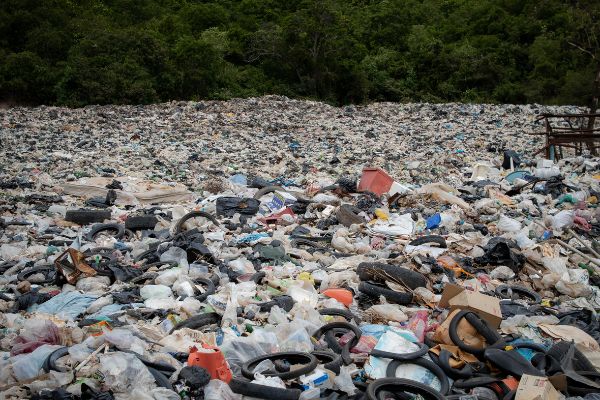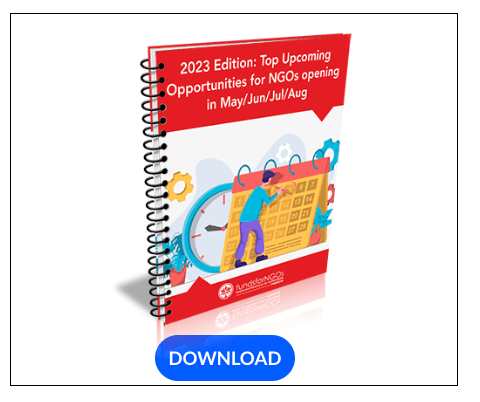
Deadline: 8-May-23
The Environmental Research & Education Foundation (EREF) is pleased to announce a call for proposals to address all areas of integrated solid waste management, with a strong focus towards research that increased sustainable solid waste management practices.
The sustainability movement has reached the business models of nearly every industry in the United States, and many companies, municipalities and states have set aggressive sustainability goals that include how waste streams are being managed. The EREF Board of Directors has set an initiative to ensure research funded reflects EREF’s long-term strategic plan to address all areas of integrated solid waste management, with a strong focus towards research that increased sustainable solid waste management practices.
EREF is an IRS 501(c)3 non-profit organization and is one of the largest sources of funding for solid waste research in North America. EREF is not affiliated with any other entity or group and governed by a duly elected Board of Directors. The Board of Directors is the decision-making body that has responsibility for establishing policies that define program interests and fundamental objectives to be served by the Foundation.
Strategic Research Priorities
- EREF’s Board of Directors has identified 3 key Priorities that focus on the impacts of solid waste management, circular and sustainable materials management, and mitigating environmental risk and/or harm:
- Climate Change Impacts/Greenhouse Gas Emissions
- Quantification of greenhouse gas emissions, including direct measurement, modeling, data & methodology
- Efficacy of direct emissions measurement technologies and variables that impact their ability to quantify whole site landfill emissions
- Comparing the accuracy of landfill models and GHG reporting methodologies relative to direct measurement technologies
- Understanding the contribution of GHG emissions from landfills due to hotspot sources versus typical gas field maintenance/upgrade activities.
- Impacts & reduction strategies from waste management collection & disposal options, including waste-to-energy, landfill gas to energy, etc.
- Impact of waste management activities, including how they related to broader emissions in manufacturing/re-manufacturing
- Evaluation of emissions reduction strategies and associated avoided emissions that can be attributed to sustainable waste management practices
- Quantification of greenhouse gas emissions, including direct measurement, modeling, data & methodology
- Emerging Contaminants
- Potential impacts of emerging contaminants on waste management operations including leachate disposal/treatment, composting facility operations, anaerobic digestion facilities and digestate management
- Relative contributions of PFAS to and from receiving solid waste management facilities (e.g. landfills, MRFs, compost facilities)
- Economic impacts of PFAS management at solid waste facilities
- Potential impacts of PFAS on compost or anaerobic digestion facility operations and facility outputs (e.g., produced compost, AD effluent)
- Fate and transport/environmental and health impacts from emerging contaminants, including those managed by waste facilities
- Assess the potential fate and transport/environmental health impacts of PFAS from waste collection through final disposal
- Best practices/effective management strategies during waste collection and disposal
- Potential impacts of emerging contaminants on waste management operations including leachate disposal/treatment, composting facility operations, anaerobic digestion facilities and digestate management
- Advancing Materials Circularity & Recycling
- Evaluation/efficacy of policies that impact waste management or circularity
- Measuring and evaluating the effect of extended producer responsibility frameworks
- Quantifying the effectiveness of bottle bills
- Evaluation of source separated organics management policies and the efficacy of those policies to improve materials circularity
- Assessment of trade-offs between environmental burdens associated with circular priorities (e.g., via LCA)
- Evaluate the potential trade-offs associated with environmental impacts, policy and practice related to different end of life pathways
- Understanding barriers/benefits experienced across the value chain (e.g., end market, recycled content needs)
- Evaluation/efficacy of policies that impact waste management or circularity
Funding Information
- Projects and research previously funded by the Foundation can be viewed on its website at erefdn.org. Previously awarded grants have ranged from $15,000 to over $500,000 with the average grant amount in recent years being $160,000.
- Typical project durations are about 2 years. It should be noted that proposed research in excess of $300,000 or longer than 3 years should contain sufficient details that justify the need for the higher than average amount requested and longer project duration.
Submission Criteria
- Non-U.S. Institutions: There are no restrictions in regards to geographic location. Any U.S. or non-U.S. institutions are eligible to apply.
- Non-Academic Institutions: Proposals will be accepted from non-academic institutions provided the principal investigators are qualified to conduct the research.
For more information, visit Research Grants Program.
